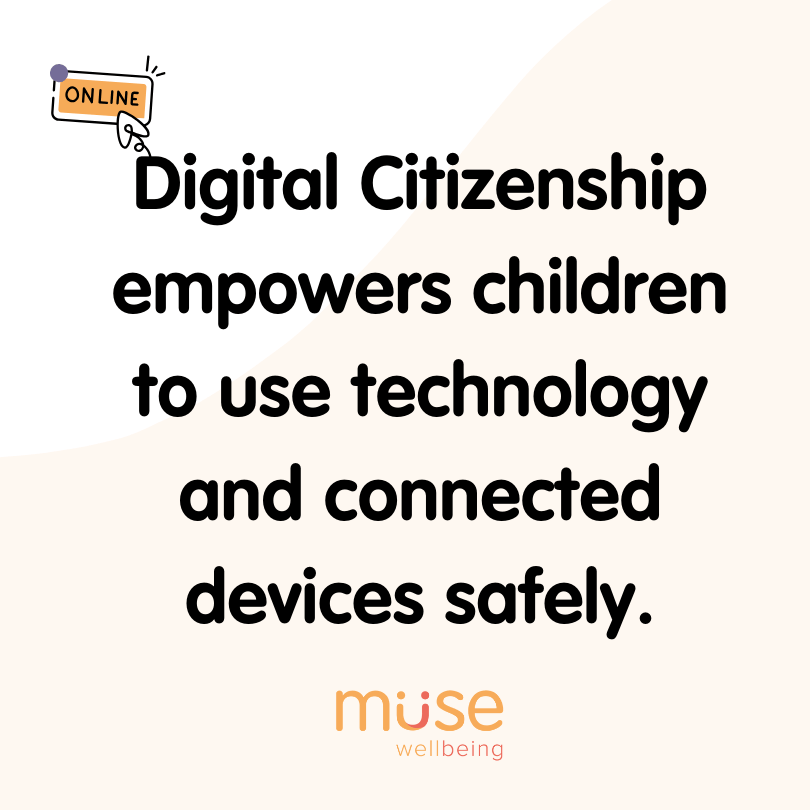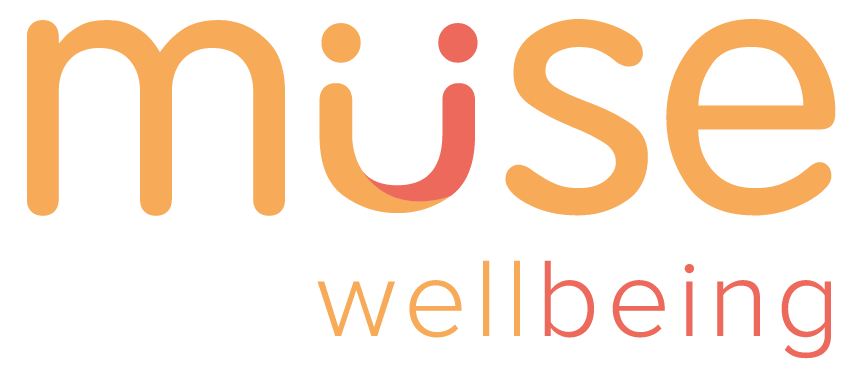Digital Citizenship Vs Internet Safety: What is the Difference?

Charlotte is an experienced educator working in mainstream and SEN schools in northern England. She loves all things about reading!

David is the Muse Wellbeing director and lead curriculum developer. His Main passions include education, surfing and travelling.
Digital Citizenship Vs Internet Safety: What is the Difference?
Digital citizenship and internet safety are two closely related concepts that play a crucial role in the wider PSHE curriculum. While internet safety is a key part of digital citizenship, understanding both is essential for students to navigate the online world safely, responsibly, and ethically.
What is Digital Citizenship?
Digital citizenship teaches students how to use technology and the internet responsibly, from managing cyberbullying to understanding privacy and copyright. It’s about showing children the impact of their online choices, both on themselves and others.
As digital technology becomes an integral part of children’s lives, teaching them to be good digital citizens is just as important as teaching them how to be responsible in the real world. A 2024 Ofcom report revealed that 32% of parents allow children aged 5-7 to use social media unsupervised. With younger children spending more time online, it’s essential they understand the risks and responsibilities of the digital world.

One of the most important aspects of digital citizenship is understanding the concept of a “digital footprint.” What students share online can follow them for years, which is why it’s crucial to educate them on making positive, ethical choices online. As technology becomes more integrated into students’ lives, understanding digital citizenship will empower them to make responsible decisions.
What is Internet Safety?
Internet safety, while an integral part of digital citizenship, focuses on the specific do’s and don’ts of online activity. It’s about protecting students and safeguarding their privacy online.
Children often think they can navigate the internet on their own, but without proper guidance, they are vulnerable to a range of risks, including sharing private information, downloading harmful software, visiting age-inappropriate websites, and interacting with strangers. It’s important to start teaching internet safety early. Schools must take responsibility for educating students on how to stay safe online, just as they would in the real world.
Incorporating internet safety lessons into a broader digital citizenship curriculum, such as the one provided by Muse Wellbeing, ensures that students develop a well-rounded understanding of both online safety and responsibility from an early age. Muse Wellbeing’s PSHE curriculum includes internet safety lessons from Year 1 through Year 6, helping to lay the foundations for a generation of responsible digital citizens.
The Difference Between Internet Safety and Digital Citizenship
While internet safety provides clear guidelines on protecting students from harm, digital citizenship focuses on a broader range of behaviours and actions in the online world. Digital citizenship includes respecting others’ work, communicating positively online, and critically evaluating information, whereas internet safety teaches students how to avoid danger, such as keeping personal information private and recognizing unsafe situations.
In essence, internet safety is about protecting individuals from harm, while digital citizenship teaches students how their actions online impact both themselves and others. The concept of a “digital footprint” should be introduced early to help students understand the lasting impact of their online choices. Positive actions like sharing helpful content and supporting others online are part of good digital citizenship, but actions like cyberbullying or sharing private information can follow students for years.
Both digital citizenship and internet safety are vital in today’s digital age, which is why Muse Wellbeing’s comprehensive curriculum covers both topics, providing students with the knowledge they need to navigate the online world safely and responsibly.
What Should a Digital Citizenship Curriculum Include?
Muse Wellbeing’s digital citizenship curriculum covers essential topics such as staying safe online, understanding the digital footprint, maintaining privacy, preventing cyberbullying, and practicing good online communication. It also addresses the importance of taking breaks from technology for both physical and mental wellbeing.
In an increasingly connected world, it’s just as important to teach students when to take a break from screens as it is to teach them how to navigate the online world. Encouraging students to balance their online and offline time helps promote healthy habits and overall wellbeing.
Is Teaching Digital Citizenship and Internet Safety Mandatory?
While digital citizenship itself is not a statutory subject, many of its topics align with statutory RSE (Relationships and Sex Education) and RSHE (Relationships, Sex, and Health Education) topics. This is why schools often incorporate digital citizenship lessons into their broader curriculum.
Government guidance on teaching online safety in schools highlights the importance of equipping pupils with the knowledge to make safe, respectful use of the internet and technology. Muse Wellbeing’s curriculum is designed to meet and exceed the Department for Education’s 2020 guidance, ensuring that teachers can confidently teach students the key elements of digital citizenship and internet safety.
Teaching Digital Citizenship and Internet Safety
As the line between the online world and the real world continues to blur, preparing students to be responsible digital citizens is more important than ever. The internet will play an increasingly significant role in their education, careers, and social lives, and being equipped with the right knowledge and skills will allow them to enjoy the benefits of technology while avoiding its risks.
Though technology evolves rapidly, the core principles of digital citizenship—such as online respect, privacy, and critical thinking—transcend changes in apps and devices. Muse Wellbeing regularly updates its curriculum using feedback from teachers and students, ensuring that schools have the most up-to-date resources to teach students how to be responsible and safe online.
Muse Wellbeing
Subscribe for RSHE & Wellbeing Updates & Learning Resources

Copyright © 2026 Muse | All Rights Reserved.
Would you like to logout of Muse Wellbeing?


